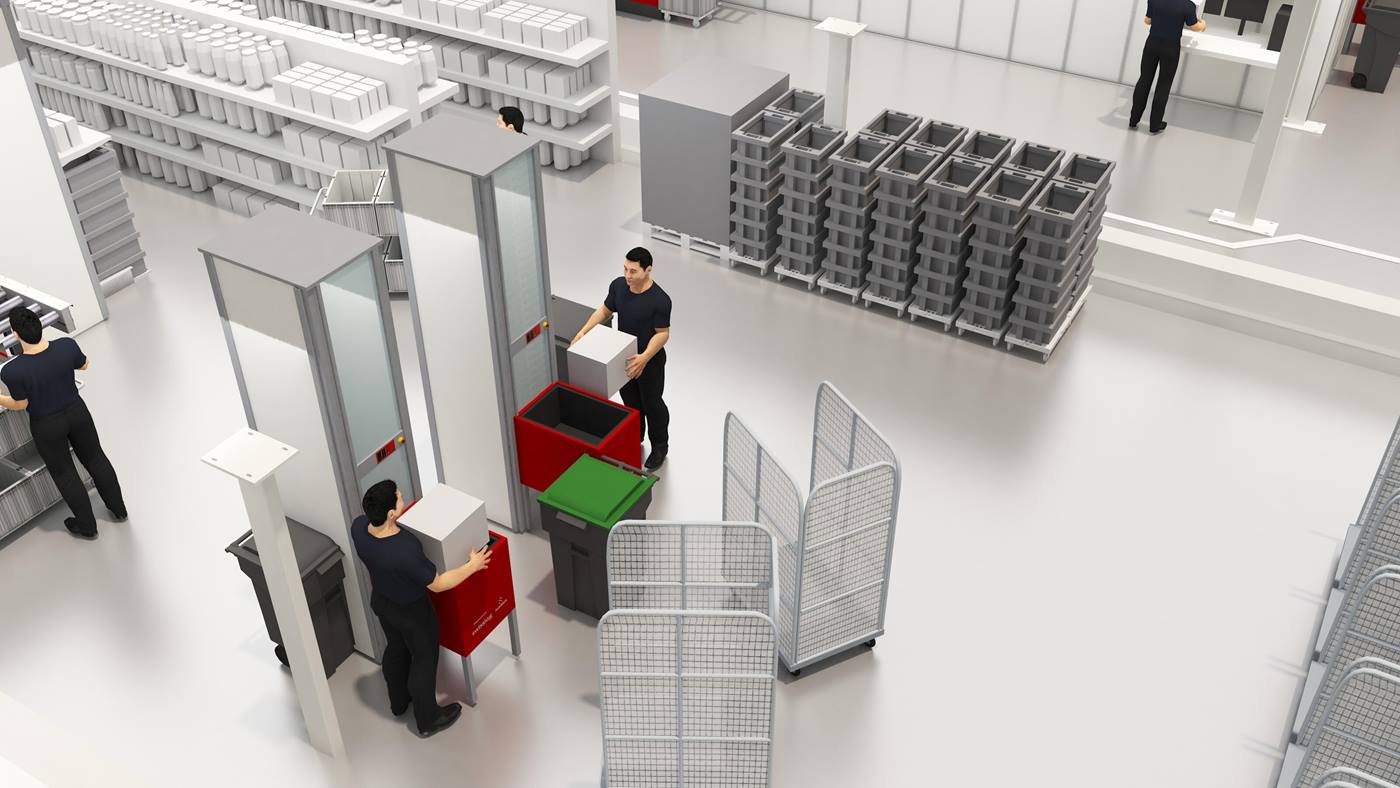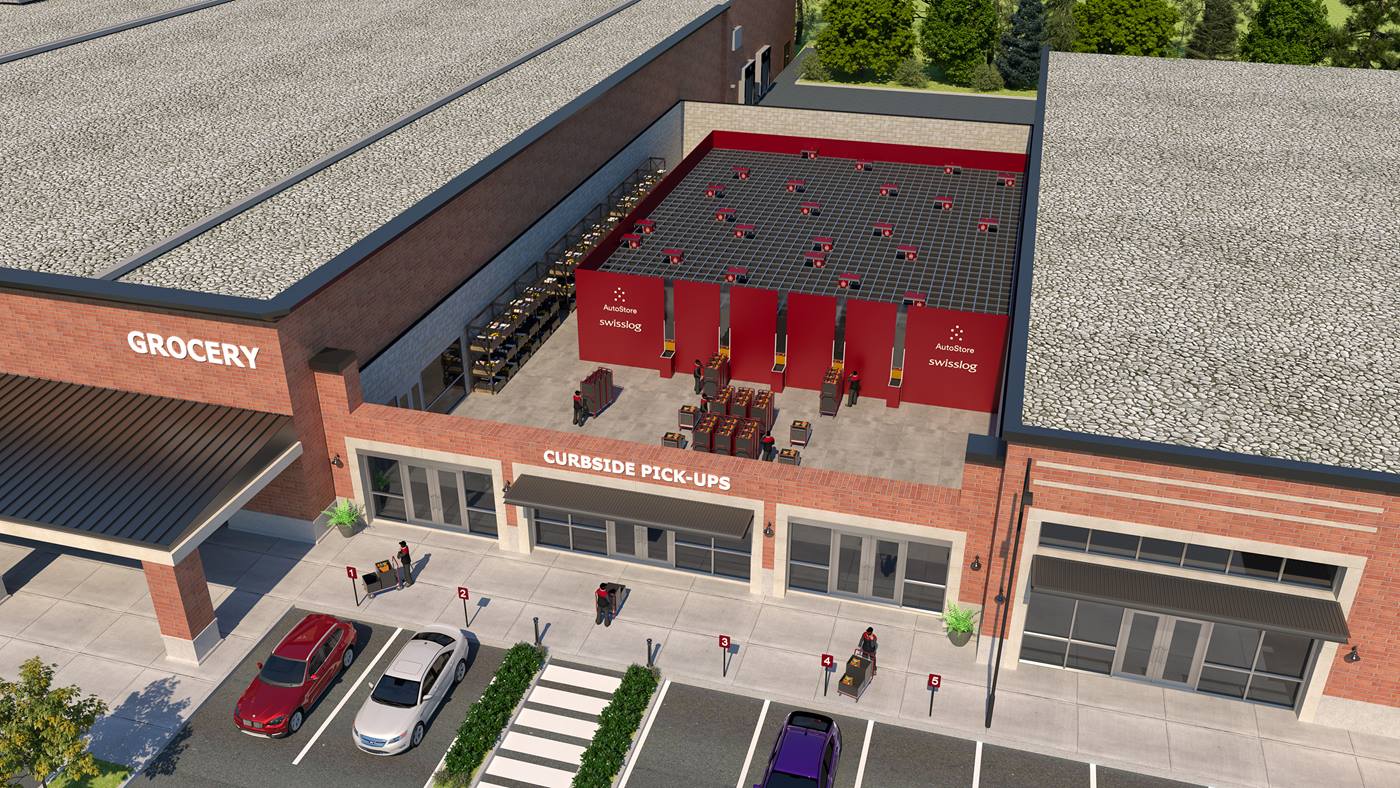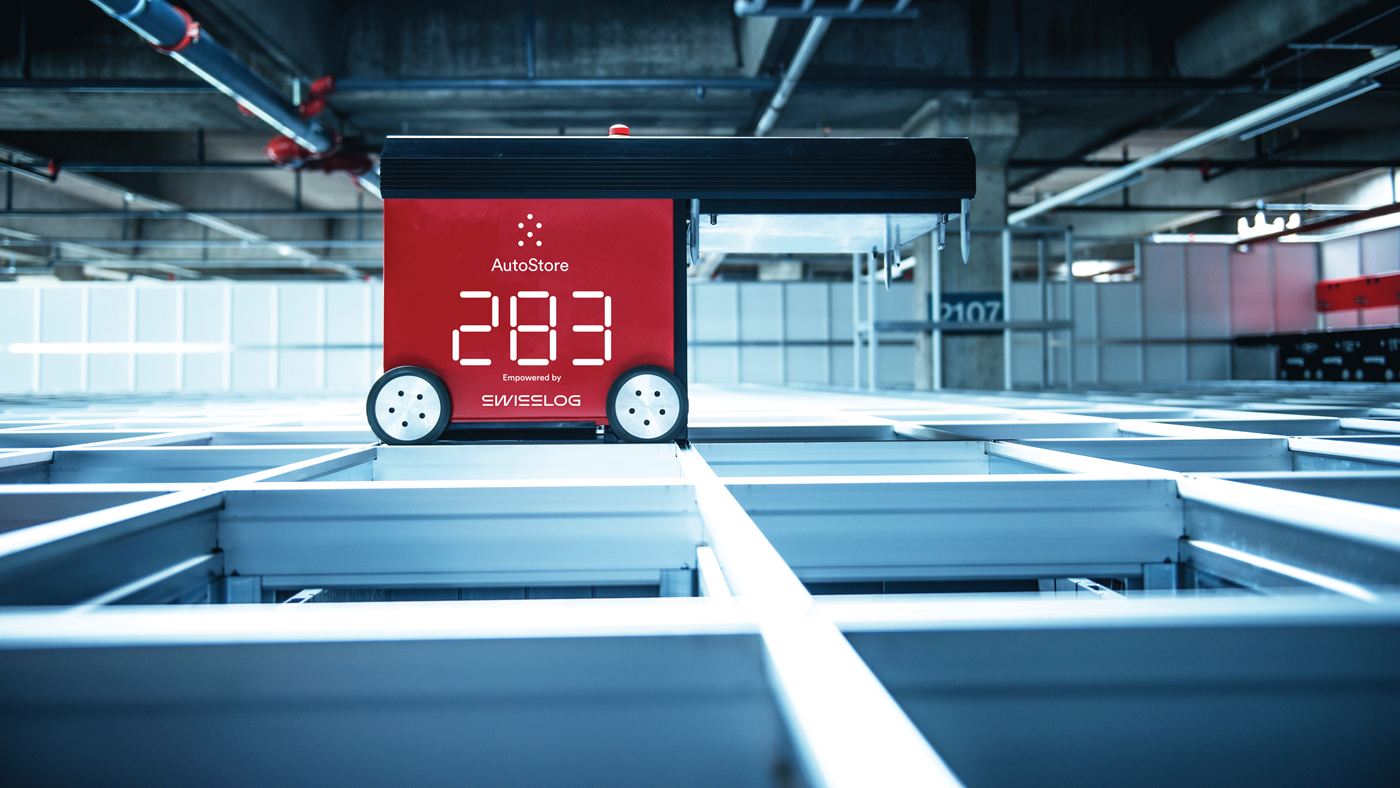Getting Into the E-grocery Automation Mindset
Bob Hoffman
August 4, 2022
Reading Time:
5 min.
In a previous post, we outlined five overlooked challenges that can make or break e-grocery automation. In a follow-up post, we explored the first of those challenges in more detail. In this post, we’ll take a closer look at the second challenge: adopting the right mindset.

There are a number of important decisions to be made as you move through the process of offering and scaling e-grocery services. But underlying those decisions are some mindsets that, when adopted, give your business the best chance to succeed. Here are three of the most important:
1. E-grocery as integral to the retail brand experience
There’s a fundamental decision grocers face when they first offer e-grocery services: to own the process or outsource it to a third party.
There’s no denying that outsourcing can be attractive for grocers at the beginning of their journey. It allows them to tap into established processes and infrastructure, but the price for “bolting” those process onto you retail network is high.
You don’t just sacrifice future profitability; you also give up your relationship with online customers and your control of the e-grocery experience. The third party owns the customer data and is responsible for the customer experience. For grocers that have invested in their brands and building strong customer relationships, that can be a lot to give up. Plus, a service that can be quickly bolted onto your operation can just as quickly be unbolted if the third party ever makes the decision to cut grocers out of the process. If they do, they’ll take all of that customer data with them.
If you think e-grocery is a passing fad, it may make sense to simply connect into third-party systems for ordering and fulfillment. But if you believe it represents a permanent shift in the shopping habits among key segments of your market, integrating support for e-grocery into your operations is simply a better long-term strategy.
2. E-grocery as an expansion of the grocer’s role
Grocers have always relied on customers to pick their own products. Now with e-grocery, that responsibility is in the hands of the grocer. That represents a shift that cannot be overestimated.
Grocers have been able to absorb much of the impact of this change by fulfilling orders from store shelves, essentially using surrogate shoppers to assume the role of their customers. But that strategy becomes less viable as order volumes grow. Aisle congestion, labor shortages and slower fulfillment times during peak periods are just some of the challenges grocers face as they attempt to scale manual order fulfillment. Leading grocers have found that automating fulfillment close to customers is the most efficient and scalable approach to meeting growing e-grocery demand and grocers should begin preparing for this possibility early in the process.
3. E-grocery as a hybrid of e-commerce and manufacturing
When it comes to automation, some grocers (and automation suppliers) have modeled their solutions on those used to support e-commerce in other retail sectors. That strategy has had little success because it fails to account for the major differences between e-grocery fulfillment and other forms of e-commerce.
In most e-commerce applications, order sequencing isn’t that critical. As long as you have a batch of orders ready when it’s time to load the truck, it doesn’t really matter when those orders are picked. With e-grocery, sequencing and efficiency are more critical because you have more complex orders and a constant stream of pickups and deliveries throughout the day.
Because I started my career in the automotive industry, this aspect of e-grocery fulfillment has always felt natural to me. It’s not unlike an engine assembly line. Orders must move methodically through the process, with completed orders being ready for pickup and delivery with the predictability of engines coming off the line.
Swisslog has had more success with automating e-grocery fulfillment than any other organization and, at the risk of giving away our “secret sauce,” I believe one of the keys to that success is the fact that we blend e-commerce and industrial engineering principles when designing and configuring our solutions. That helps us ensure our automation systems meet the demanding requirements of e-grocery while also creating opportunities for our customers to drive continuous improvement through industrial engineering.
Finding the Right Partner
Implementing e-grocery services may be relatively simple if you’re willing to give up control of your customer relationships and brand experience. But grocers are increasingly balking at that trade-off. Instead, they are moving forward with delivering a branded experience by owning the process and preparing for growth by planning to automate fulfillment close to customers. There will be challenges along the way, but with the right mindset they can overcome those challenges and implement automation solutions that enhance fulfillment speed, efficiency and predictability.
For more insights on how we help grocers automate fulfillment, read the Swisslog white paper, The E-Grocery Automation Playbook and subscribe to this newsletter to get more insights to help you identify and overcome the overlooked challenges you’ll face as you move forward on your e-grocery journey. To connect with one of our specialists, contact Swisslog.
1. E-grocery as integral to the retail brand experience
There’s a fundamental decision grocers face when they first offer e-grocery services: to own the process or outsource it to a third party.
There’s no denying that outsourcing can be attractive for grocers at the beginning of their journey. It allows them to tap into established processes and infrastructure, but the price for “bolting” those process onto you retail network is high.
You don’t just sacrifice future profitability; you also give up your relationship with online customers and your control of the e-grocery experience. The third party owns the customer data and is responsible for the customer experience. For grocers that have invested in their brands and building strong customer relationships, that can be a lot to give up. Plus, a service that can be quickly bolted onto your operation can just as quickly be unbolted if the third party ever makes the decision to cut grocers out of the process. If they do, they’ll take all of that customer data with them.
If you think e-grocery is a passing fad, it may make sense to simply connect into third-party systems for ordering and fulfillment. But if you believe it represents a permanent shift in the shopping habits among key segments of your market, integrating support for e-grocery into your operations is simply a better long-term strategy.
2. E-grocery as an expansion of the grocer’s role
Grocers have always relied on customers to pick their own products. Now with e-grocery, that responsibility is in the hands of the grocer. That represents a shift that cannot be overestimated.
Grocers have been able to absorb much of the impact of this change by fulfilling orders from store shelves, essentially using surrogate shoppers to assume the role of their customers. But that strategy becomes less viable as order volumes grow. Aisle congestion, labor shortages and slower fulfillment times during peak periods are just some of the challenges grocers face as they attempt to scale manual order fulfillment. Leading grocers have found that automating fulfillment close to customers is the most efficient and scalable approach to meeting growing e-grocery demand and grocers should begin preparing for this possibility early in the process.
3. E-grocery as a hybrid of e-commerce and manufacturing
When it comes to automation, some grocers (and automation suppliers) have modeled their solutions on those used to support e-commerce in other retail sectors. That strategy has had little success because it fails to account for the major differences between e-grocery fulfillment and other forms of e-commerce.
In most e-commerce applications, order sequencing isn’t that critical. As long as you have a batch of orders ready when it’s time to load the truck, it doesn’t really matter when those orders are picked. With e-grocery, sequencing and efficiency are more critical because you have more complex orders and a constant stream of pickups and deliveries throughout the day.
Because I started my career in the automotive industry, this aspect of e-grocery fulfillment has always felt natural to me. It’s not unlike an engine assembly line. Orders must move methodically through the process, with completed orders being ready for pickup and delivery with the predictability of engines coming off the line.
Swisslog has had more success with automating e-grocery fulfillment than any other organization and, at the risk of giving away our “secret sauce,” I believe one of the keys to that success is the fact that we blend e-commerce and industrial engineering principles when designing and configuring our solutions. That helps us ensure our automation systems meet the demanding requirements of e-grocery while also creating opportunities for our customers to drive continuous improvement through industrial engineering.
Finding the Right Partner
Implementing e-grocery services may be relatively simple if you’re willing to give up control of your customer relationships and brand experience. But grocers are increasingly balking at that trade-off. Instead, they are moving forward with delivering a branded experience by owning the process and preparing for growth by planning to automate fulfillment close to customers. There will be challenges along the way, but with the right mindset they can overcome those challenges and implement automation solutions that enhance fulfillment speed, efficiency and predictability.
For more insights on how we help grocers automate fulfillment, read the Swisslog white paper, The E-Grocery Automation Playbook and subscribe to this newsletter to get more insights to help you identify and overcome the overlooked challenges you’ll face as you move forward on your e-grocery journey. To connect with one of our specialists, contact Swisslog.














